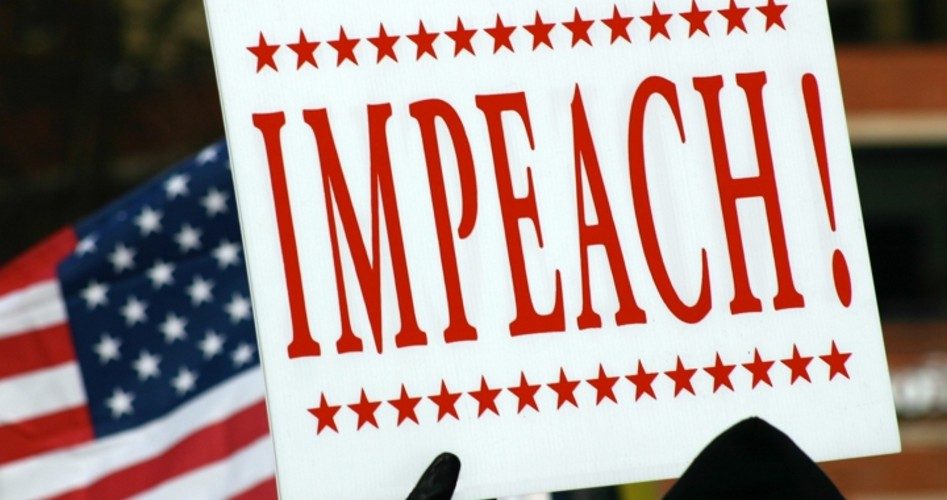
With an impeachment vote against the president by the Democrat-controlled House of Representatives almost a sure thing, Senate Majority Leader Mitch McConnell is preparing for his trial. On Tuesday he said the first step would be to see if he could cobble together some sort of bipartisan agreement on procedure with Senate Minority Leader Chuck Schumer (D-N.Y.).
Barring that, McConnell said he would let his Republican conference set the rules. If that doesn’t happen, then the third option would come into play: Let the House members make their case for impeaching the president before the entire Senate, with rebuttal provided by Trump’s lawyers. Then the Senate, vote by vote, would determine the next step to take.
The process could take months.
Or it could end with that first vote.
Much depends upon the Senate majority leader, to whom the Constitution has given much power in such a case. As Jessica Levinson of NBC News noted, “The Constitution does not give us a specific road map for conducting that trial. Instead, the Senate has the power to implement its own rules and procedures. Hence, Sen. Mitch McConnell, the Senate Majority Leader, has enormous power to shape the trial and try to ensure a desired outcome.”
The first vote could be to reject any and all articles of impeachment presented by the House. In that case, the trial would end.
Or Republicans could seize the opportunity given to them by the House and draw out the trial, allowing the president to defend himself publicly against all charges. They could subpoena witnesses the House never called and turn the trial into an investigation of Hunter and Joe Biden’s corrupt behaviors. They might want to use the trial to talk about the Steele dossier and the endless Russia investigation and the supposed Ukrainian interference in the 2016 presidential election.
Democrats, given the opportunity, would like an extended trial as an opportunity to lay out, once again, in as clear and vivid fashion as possible, the litany of charges they harbor against the president.
As for the president himself, he just might relish the opportunity to defend himself publicly against all charges, using the same media that has railed against him for years, to present his defense to the American people. Every member of the mainstream media would have to cover it, whether they wanted to or not.
The president would consider it a vindication of his innocence, knowing in advance that the Senate would not vote to impeach him. It would give the president a chance for payback to the media, which has excoriated him since before he was elected.
Trump is a showman and would love to turn the trial to his advantage, considering it a taxpayer-funded reelection campaign just months before the November election. He could simultaneously play the victim, the survivor, the victor, and the hero.
An extended trial would keep anti-Trump senators from promoting their own reelection campaigns. And, once the trial is over, the last conversation is the one most voters would remember: “I am innocent! I am vindicated!”
There’s another advantage of a long, drawn out impeachment trial of the president in the Senate: Once reelected (some are predicting a “Trumpslide” in November thanks to Democrats’ failed impeachment efforts), the president would be impeachment-free for the next four years and could concentrate (with Republican majorities expanded in the Senate and perhaps regained in the House) on completing his campaign-promised agenda. He would finally be able to “build the wall” to block the flow of illegals into the country, to extend the economic recovery through additional tax cuts and further deregulation of the economy, and continue to build his legacy of bringing the federal judiciary back to an “originalist” view of the Republic’s most precious document, the Constitution of the United States.
In any event, short or long, the Senate trial of the president over articles of impeachment brought by the House will mute Democrat and media claims of presidential malfeasance until 2024.
Image: BenThomasPhoto via iStock / Getty Images Plus
An Ivy League graduate and former investment advisor, Bob is a regular contributor to The New American, writing primarily on economics and politics. He can be reached at [email protected].


